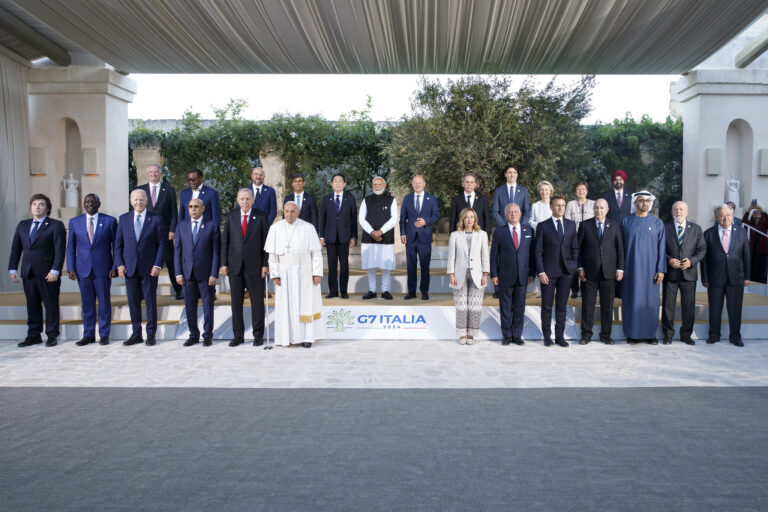At the recent G7 summit in Italy, the G7 leaders pledged their support for President William Ruto’s ambitious plan to enhance Africa’s development.
President Ruto’s call for reforming the international financial architecture resonated with the G7, leading to a commitment to modernize financial systems to promote equity and inclusion for the Global South, especially Africa.
The G7 has agreed to champion reforms in the international financial system to ensure it meets the needs of developing nations.
This includes providing Africa with access to concessional, long-term, and agile finance and enhancing their participation in global decision-making processes.
Moreover, the G7 committed to supporting the G20 Compact with Africa and the Paris Pact for People and Planet (4P), initiatives aimed at improving global collaboration and increasing financing for development, climate solutions, and private sector investment.
Emphasizing the importance of sustainable and transparent financing for developing countries, the G7 highlighted the need for substantial reforms and private investment.
They underscored domestic resource mobilization as a critical component, referencing the Nairobi-Washington Initiative launched by Presidents Ruto and Joe Biden.
The G7 leaders pledged to work with multilateral development banks, the International Monetary Fund (IMF), the World Bank, and other institutions to advance President Ruto’s development plan. The aim is to pilot this plan in various countries by the end of 2024 and implement it globally.
Their support aligns with the African Union’s Agenda 2063 and addresses the specific needs of African countries. This includes enhancing food security, infrastructure, trade, and agricultural productivity at local and regional levels.
The G7 supports the operationalization of the African Continental Free Trade Area, which is seen as a critical driver for Africa’s economic growth in the coming decade.



